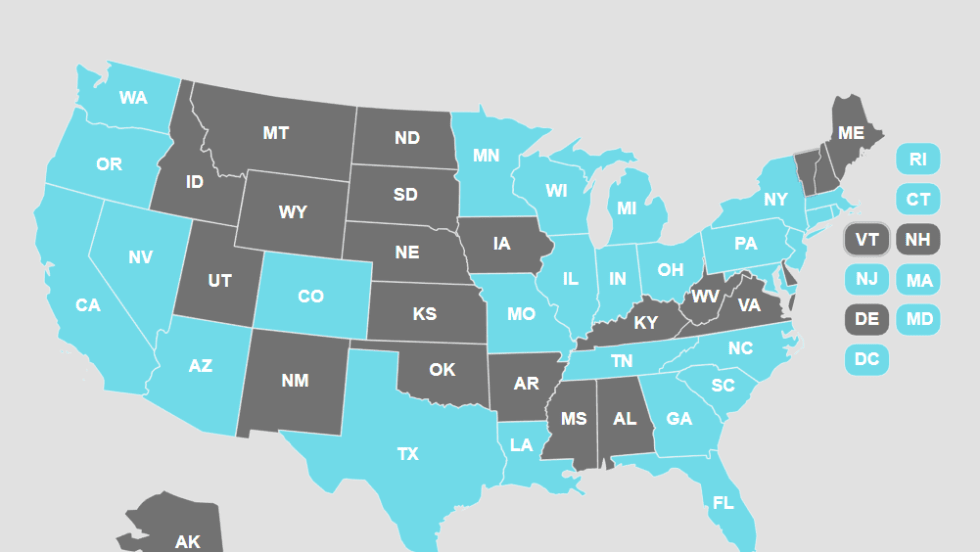The Department of Justice announced on April 25 that Indianapolis-based Celadon Group, Inc. has agreed to pay $42.2 million in restitution for filing materially false and misleading statements to investors and falsifying books, records, and accounts.
Federal prosecutors said that Celadon entered into a deferred prosecution agreement after being charged with securities fraud. The case revolves around the values of assets involved in four trade transactions that were recorded at inflated values and not fair market value. DOJ noted that this investigation is ongoing.
“Celadon executives misled the investing public for a simple reason: profit,” said Assistant Attorney General Brian A. Benczkowski of the Justice Department’s Criminal Division. “Securities fraud harms all investors — from the most sophisticated to those everyday Americans saving for retirement, and the Criminal Division remains committed to investigating and prosecuting these complex crimes.”
According to court documents filed as part of the agreement with DOJ, Quality Companies LLC (Quality) was a wholly owned subsidiary of Celadon that leased tractors and trailers to owner-operator truck drivers. Between 2013 and 2016, Quality’s inventory grew rapidly, from approximately 750 tractors and trucks to more than 11,000.
A DOJ press release on the agreement lays out the scope of the fraudulent activity:
Quality’s financial performance began to struggle in 2016 due in part to a slowdown in the trucking market. In addition, Quality owned a significant number of a truck models with mechanical issues, which many drivers did not want to lease. By 2016, many of Quality’s trucks were idle, unleased and overvalued on Quality’s books by tens of millions of dollars.
Instead of properly reporting Quality’s financial difficulties to investors, members of Celadon’s and Quality’s senior management team, all acting within the scope of their employment, participated in a scheme that resulted in Celadon falsely reporting inflated profits and inflated assets to the investing public through Celadon’s financial statements.
Between approximately June 2016 and October 2016, Quality engaged in a series of trades as a means to dispose of its aging and unused trucks. In order to avoid disclosing the losses connected to these trucks, executives executed the trades using invoices purposely inflated well above market value. Celadon ultimately used these invoices and inflated truck values to hide millions of dollars of losses from investors.
In December 2016, after allegations of misconduct had arisen publicly, Celadon’s management approved a memorandum that falsely stated the trucks involved in the above-described transactions were purchased and sold at fair market value, and were accounted for properly on Celadon’s books. Further, beginning in approximately January 2017, Celadon’s independent auditors conducted an investigation into the allegations of misconduct.
In response, multiple members of Celadon’s and Quality’s management falsely represented to independent auditors that the transactions were done at fair market value and that they were not trades. Celadon’s auditor ultimately withdrew its audit opinion for certain Celadon financial statements. The resulting disclosure by Celadon of the auditor’s withdrawal caused a significant drop in the price of Celadon’s stock, which resulted in investors losing tens of millions of dollars.
Under the terms of the DPA, Celadon is required to pay full restitution of $42.2 million to shareholder victims “directly and proximately harmed,” which will be paid over a period of years.
Celadon has also agreed to implement “rigorous: internal controls and cooperate fully with DOJ’s ongoing investigation, including its investigation of individuals. Under the DPA, prosecution of the company for securities fraud will be deferred for an initial period of approximately five years, subject to approval by the court, “to allow Celadon to demonstrate good conduct.”
This resolution was reached based on a number of factors, including Celadon’s ongoing cooperation with the United States and the company’s extensive efforts at remediation. Among other remedial efforts, DOJ noted that the company no longer employs the executives involved in wrongdoing, and the company replaced its executive management team with “experienced executives who display a commitment to building an ethical corporate culture. Furthermore, Celadon created the new position of Chief Accounting Officer and hired an experienced Internal Audit staff member reporting directly to the Company’s Internal Audit Manager.”
DOJ also announced filing a plea agreement against Danny Williams, the former president of Quality, who was charged with one count of conspiracy to commit securities fraud, to make false statements to a public company’s accountants, and to falsify books, records and accounts of a public company in connection with Celadon’s crimes.
DOJ advised that anyone who believes they are a victim of this offense, may go to thisgovernment linkor call 888-549-3945.
In an April 25 statement, Celadon CEO Paul Svindland, commented that the motor carrier has “now settled the governmental investigations and other legal proceedings related to the events that arose under prior management. We appreciate the government's recognition of the significant changes we have made, our ongoing commitment to legal and regulatory compliance, and our significant cooperation in the investigations.
“With these legal issues resolved,” he added, “we will focus on continuing to strengthen our corporate controls and procedures and pursuing a long-term capital structure and the operational turnaround of our core, asset-based truckload transportation business."














